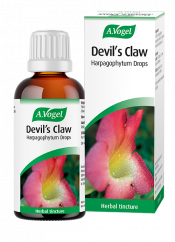Just how healthy are your muscles and joints?
Answer our questions and find out if your flexibility is compromised.
Find out how flexible you areInflammatory complaints like arthritis are among the most common conditions I get asked about here at A.Vogel. I often suggest looking at your diet to help improve symptoms but, in this blog, I thought I would focus on one nutrient in particular and how it can influence inflammation. Find out more!
Do you struggle with an inflammatory condition? To find out if zinc could be helpful, this blog will look at some interesting questions:
Zinc is known to influence how the body responds to inflammation.
Our levels of this important nutrient can decline with age and, unfortunately, this may coincide with chronic inflammation.
You see, low levels of zinc seem to change how the immune cells that control inflammation act, thus resulting in the issue becoming more problematic.

Research has shown that low levels of zinc can increase the body's inflammatory response. In a 2015 study, a deficiency was seen to trigger the improper activation of immune cells and the abnormal function of a protein called cytokine IL-6, which is inflammatory.1
So, without zinc, the cells that control inflammation appear to activate and respond differently, causing the cells to promote more inflammation.
Also, recent research has indicated that zinc possesses anti-inflammatory activity. It works by inhibiting the signaling of a protein known as NF κB, and also by modulating T cell functions that may limit the effect of cells known as cytokines, which are associated with severe infections.2
| Would you like to know more about inflammation? Take a look at my blog on the causes of inflammation and the recommended treatments for additional tips and advice. |
To tackle inflammation, I highly recommend trying Devil's Claw.
This acts gently on most of the inflammatory pathways, reducing the likelihood of side effects because none of the pathways are completely blocked.
Devil's Claw works cumulatively, can be taken long-term, and isn't contraindicated with other anti-inflammatories or painkillers.

Our Devil's Claw tincture is easily absorbed by the body and is made from fresh herb extracts.
"Have been using for years & it works."

The recommended daily intake of zinc is 9.5mg for adult men and 7mg for adult women.
It is quite easy to become deficient in zinc. Many foods now have low levels as the soil is depleted of it; plus, certain groups may be at an increased risk of a deficiency. This includes:
Stress and poor diet are other contributing factors in low zinc levels.
As zinc can influence a wide range of bodily processes and not just inflammation, a deficiency can result in various symptoms. These may include:
By making some simple adaptations to your diet, it is possible to improve your zinc intake.
Here are my top dietary tips to help you get more zinc:
A supplement is another way to get a little more zinc into your system; however, watch out for supplements with high levels of the mineral. Ideally, we wouldn't want one with more than 15 mg daily, especially if you are taking it ongoing. Too much zinc can cause issues of its own, including nausea and loss of appetite.
If you want a little zinc top up, I would recommend our Balance Mineral Drink as it contains 30% of the recommended daily intake of zinc. This is alongside other nutrients that are helpful for the muscles and joints, including potassium and magnesium.
You can mix the Balance sachet in a little water, oat milk or a smoothie – whatever takes your fancy!
 Our Devil's Claw tincture is made from organically grown plant roots.
Our Devil's Claw tincture is made from organically grown plant roots.
Buy now from your local store.
To find local independent stores in your area that sell Devil's Claw Harpagophytum Drops, simply type your postcode below.

Answer our questions and find out if your flexibility is compromised.
Find out how flexible you areAs the A. Vogel Muscles and Joints advisor, I recommend Atrogel® for the effective relief from aches and pains.
Learn moreFoods such as red meat and dairy products and drinks such as caffeine and alcohol can all trigger inflammation which can increase muscle and joint pain.
Worst foods for muscle & joint painDiscover the story of Alfred VogelNature is just about the best thing we’ve got!